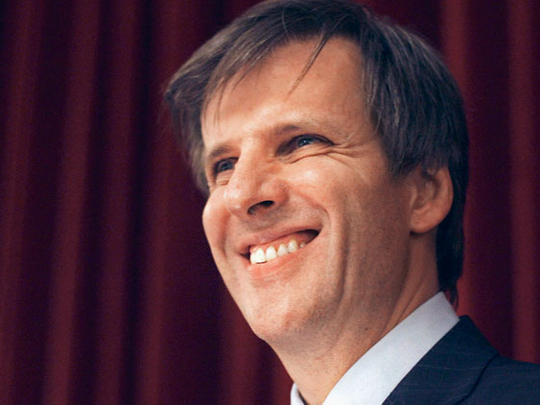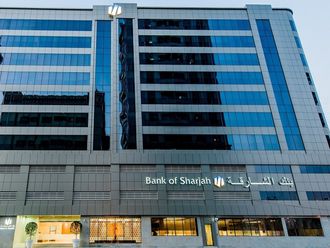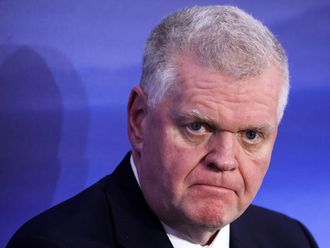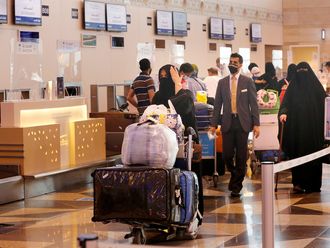
Buenos Aires: Argentina's central bank President Martin Redrado resigned on Friday night after a standoff with the government over its plan to use $6.6 billion (Dh24.2 billion) in reserves to pay debt due this year.
"I have followed the Constitution, the law and the central bank rules," Redrado said during a press conference in Buenos Aires. "My cycle has ended at the bank."
President Cristina Fernandez de Kirchner tried to fire Redrado, 48, by decree on January 7 for not backing her plan to tap reserves.
A judge halted the measure the following day, saying Fernandez hadn't notified Congress as required in the central bank charter. A bicameral commission, whose decision isn't binding, began discussing the decree on January 26.
Economy Minister Amado Boudou has said the government intends to name former central bank President Mario Blejer, who also worked at the International Monetary Fund and the Bank of England, to replace Redrado.
Central Bank Vice President Miguel Pesce has been running the institution since police barred Redrado from entering its headquarters on January 24.
"The government tried to destroy the central bank," Redrado said last night.
Reaction
The peso slid 0.3 per cent yesterday to 3.8305 per dollar from 3.8202. The yield on Argentina's 7 per cent dollar bonds due in 2015 slid 79 basis points to 12.96 per cent, according to JPMorgan Chase & Co.
Financial markets closed before Redrado's announcement.
Cabinet Chief Anibal Fernandez said on C5N television that it wasn't up to Redrado to resign.
The official said President Fernandez would decide whether to remove the banker after she receives the commission's report.
Central bank reserves almost tripled under Redrado to more than $48 billion. Appointed in 2004 by Fernandez's husband and predecessor, Nestor Kirchner, Redrado was the country's longest-serving central bank chief since Argentina's financial crisis in 2001, when it defaulted on $95 billion in bonds.
His term was due to end in September.
Under Harvard University-educated Redrado, the central bank helped navigate South America's second-biggest economy through the 2008 and 2009 global financial crisis.
Yet he was unable to rein in inflation that accelerated under Kirchner and Fernandez, said Boris Segura, a Latin America economist with RBS Securities in Stamford, Connecticut.
"Despite being independent on paper, in Argentina the central bank lost its independence over the past decade," Segura said in a January 22 telephone interview.
"Redrado is responsible for that because he never stood up to the Kirchners until it was very late."
Government reports say inflation peaked at 12.3 per cent in 2005 and fell to 7.7 per cent in December 2009.
Economists and politicians, including Vice-President Julio Cobos, say the official data underestimates consumer prices.
Annual inflation accelerated to as much as 30 per cent in 2008 before slowing during the past year, economists, including Juan Pablo Fuentes at Moody's Economy.com, said.
Redrado said last night that the high rate of inflation was caused by government policies and wasn't the fault of the central bank.
He said he had resisted pressure to let the peso weaken because that would have led to even faster price increases.
His policy of a "managed floating" exchange rate was vital to ensuring the country's financial stability given Argentina's history of financial crises, he said.
Embargo threat
Redrado, who had previously been a deputy foreign minister and chief of the country's securities and exchange commission, had said he wanted to review Fernandez's plan to use the reserves to ensure that it was legal and that the money wouldn't risk being embargoed by investors who own the country's defaulted debt.
He said Friday night that he planned to work as an economist in Argentina and abroad.












